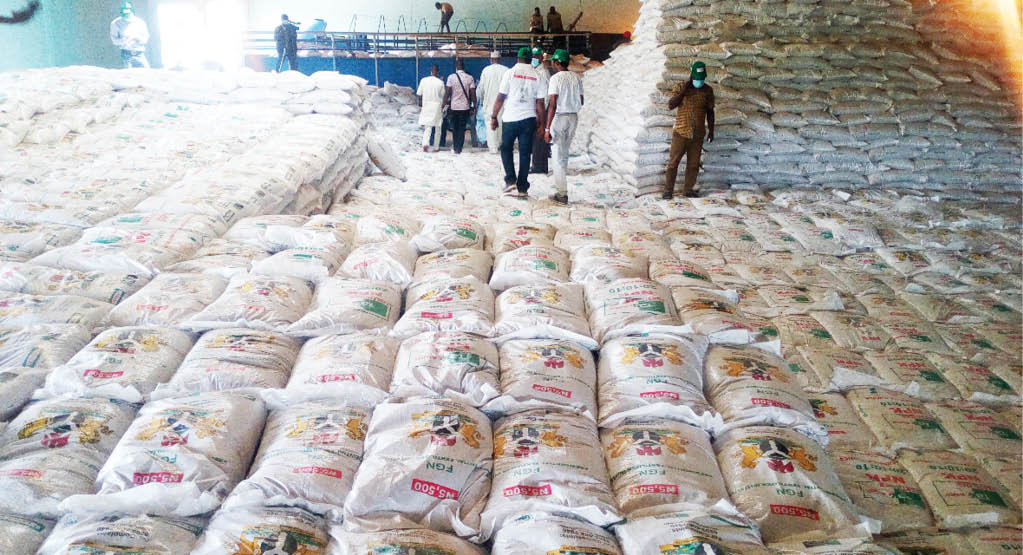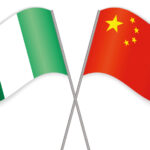Last week, a report by this paper, noted that there is difficulty accessing farming inputs even as the rainy season sets in. Farmers were expressing worry over the increasing difficulty in accessing fertiliser, a major farm input, due to both unavailability and high prices.
The situation, the farmers noted, would further worsen the decrease in farm output, which is partly responsible for the present high cost of food items in the country.
This is coming months after the Minister of Agriculture, Mohammed Sabo Nanono, said the ministry would withdraw from the purchase and sale of fertiliser.
In an interview with Daily Trust, the minister said henceforth, the ministry would limit its role to monitoring, regulation and supervision.
The minister’s remark was widely interpreted to mean subsidy withdrawal.
At least this was corroborated by the National President of All Farmers Association of Nigeria (AFAN), Architect Kabiru Ibrahim, who told Daily Trust that he was aware that subsidy on fertiliser had been completely removed by the federal government. He added that there was also nothing yet to suggest that state governments would step in to fill the void.
The decision by the federal government is surprising because on December 7, 2020, the minister announced that the ministry had registered and developed the database of five million smallholder farmers for easy targeting with the fertiliser subsidy support through the Presidential Fertiliser Initiative (PFI).
What caused this policy summersault? The minister did not elaborate on why subsidy was withdrawn or when and where the decision was taken or how much is to be saved and where the savings from subsidy removal would be diverted to. The impression is being created that the decision was taken hastily and arrived at without due consultation with the critical stakeholders.
It also came at the wrong time because the rainy season has begun in the southern and central parts of Nigeria but fertiliser is yet to be made available to farmers. This has heightened fears that the vital input might arrive too late for application.
Added to that is the rising cost of the product. For years (from 2016), the PFI sold the 50kg bag at N5,00 to N5,500 which was commendable. But last year the prices rose sharply across the states, costing between N6,700 and N8,000 for NPK and N8,800 and N13,000 for Urea. The trend continues with dire consequences for the nation’s quest for food security.
Traditionally, the bulk of farmers in the country relies more on wet season farming. Without fertiliser it is impossible for smallholder farmers to produce the needed food for the country.
It is gratifying that the minister had taken note of the fact that getting subsidised fertiliser had been a major challenge for farmers with a lot of inefficiency and corruption plaguing the distribution system. But the solution is not withdrawal of subsidy. There is the need for the government to plug the bottlenecks that hampered the smooth implementation of that policy.
Last year, widespread floods devastated vast farmlands, causing farmers to incur heavy losses. Government promised to compensate them for this shortfall by boosting irrigation farming. But it is doubtful if significant achievement was made in that regard.
The ministry of agriculture should also pay attention to what scientists at the Institute of Agricultural Research, Ahmadu Bello University, Zaria, are proposing at the moment. They are advocating that the country should place more emphasis on crop-specific fertiliser instead of blanket formulations.
They argue that scientific evidence has shown that crop-specific fertiliser is more economical for the country.
Food security is important for any nation. That is why governments all over the world subsidise agriculture. Everything about agriculture should be given the priority it deserves. Therefore, support for smallholder farmers should be stepped up and not scaled down. They should not be left at the mercy of market forces which subsidy withdrawal will amount to. It is important to stress that subsidy cannot be removed by fiat because it is central to any nation’s drive to achieve food sufficiency without which there can never national security.

 Join Daily Trust WhatsApp Community For Quick Access To News and Happenings Around You.
Join Daily Trust WhatsApp Community For Quick Access To News and Happenings Around You.


